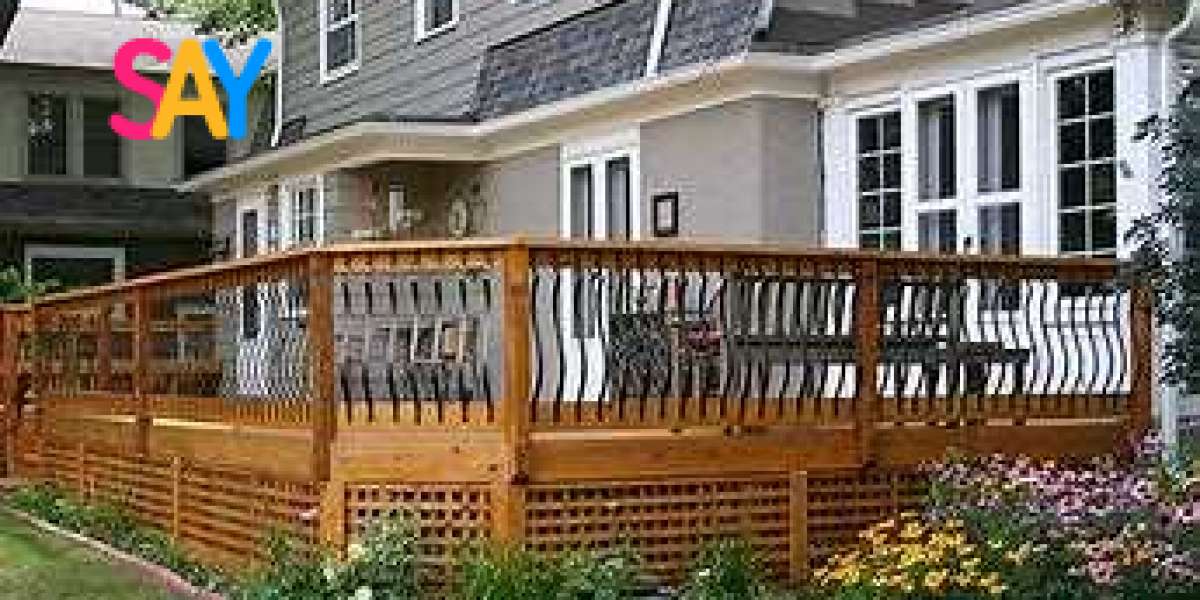The decision to build a deck marks the beginning of an exciting journey, but with it comes a crucial choice that will significantly influence the character and longevity of your outdoor oasis: the selection between classic wood decking and the modern alternative – composite decking materials. In this exploration of "Wood Decking vs. Composite Decking Materials," we'll delve into the merits, drawbacks, and considerations that define these two popular options.
1. Natural Elegance of Wood:
Wood Decking introduces a timeless elegance that has been a staple in outdoor design for generations. The warmth of natural wood, the intricate grains, and the variety of species available, from the ever-popular cedar to the exotic allure of tropical hardwoods, contribute to an aesthetic that seamlessly integrates with the natural environment. The visual appeal of wood creates a connection to tradition and nature that many find irresistible.
2. Durability and Maintenance:
While the allure of wood is undeniable, it comes with a caveat – maintenance. Wood Decking demands regular attention to ensure its longevity. Periodic staining, sealing, and preventive measures against rot and insects are essential for maintaining the pristine appearance and structural integrity of a wooden deck. The commitment to upkeep can be a labor of love for some but a potential drawback for those seeking a low-maintenance solution.
Composite Decking Materials counter with a narrative of durability and ease. Engineered to resist rot, decay, and insect damage, composite decks require minimal maintenance. The absence of splintering and warping ensures a deck that remains structurally sound over time. This characteristic not only saves homeowners time and effort but also positions composite materials as a long-lasting investment.
3. Environmental Considerations:
For environmentally conscious homeowners, the sourcing of materials is a pivotal factor. Wood Decking, when sourced responsibly from sustainably managed forests, can align with eco-friendly values. However, concerns arise with certain exotic hardwoods contributing to deforestation.
Composite Decking Materials weave an environmental story with recycled content. While the manufacturing process introduces complexities, the use of recycled materials speaks to a commitment to reducing the environmental impact. Balancing the eco-friendly aspects of each option becomes a crucial consideration.
4. Cost Analysis:
The financial aspect of the decision cannot be overlooked.wood vs composite often presents a more budget-friendly initial investment. However, the ongoing expenses associated with maintenance, repairs, and potential replacements should be factored into the long-term cost analysis.
Composite Decking Materials, with a higher upfront cost, position themselves as a potentially cost-effective solution over time. Reduced maintenance needs and a longer lifespan contribute to the appeal of a composite deck as a wise investment in the durability and aesthetics of outdoor living spaces.
Conclusion:
In the duel of "Wood Decking vs. Composite Decking Materials," there is no one-size-fits-all answer. The choice ultimately hinges on personal preferences, priorities, and the specific demands of the project. Whether you opt for the natural elegance of wood or the cutting-edge durability of composite materials, the decision shapes not just a deck but an outdoor experience that harmonizes with your lifestyle and design vision. As you embark on this journey, consider the merits and nuances each option brings, and let your choice lay the foundation for a deck that stands the test of time in both beauty and functionality.




